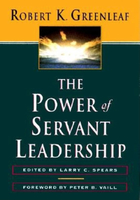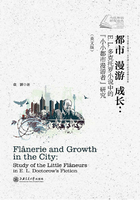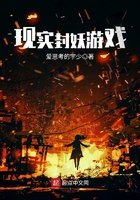IT WAS VERY STRANGE IN THAT HOUSE. The elevator, of course, no longer ran. The steel column it slid up and down on was bent and there were several marble stairs in the six flights which were broken so that you had to walk carefully on the edges as you climbed so that you would not fall through. There were doors which opened onto rooms where there were no longer any rooms and you could swing a perfectly sound-looking door open and step across the door sill into space: that floor and the next three floors below having been blasted out of the front of the apartment house by direct hits by high explosive shells. Yet the two top floors had four rooms on the front of the house which were intact and there was still running water in the back rooms on all of the floors. We called this house the Old Homestead.
The front line had, at the very worst moment, been directly below this apartment house along the upper edge of the little plateau that the boulevard circled and the trench and the weather-rotted sandbags were still there. They were so close you could throw a broken tile or a piece of mortar from the smashed apartment house down into them as you stood on one of the balconies. But now the line had been pushed down from the lip of the plateau, across the river and up into the pine-studded slope of the hill that rose behind the old royal hunting lodge that was called the Caso del Campo. It was there that the fighting was going on, now, and we used the Old Homestead both as an observation post and as an advantage point to film from.
In those days it was very dangerous and always cold and we were always hungry and we joked a great deal.
Each time a shell bursts in a building it makes a great cloud of brick and plaster dust and when this settles it coats the surface of a mirror so that it is as powdered as the windows which have been calcimined over in a new building. There was a tall unbroken mirror in one of the rooms of that house giving off the stairs as you climbed and on its dusty surface I printed, with my finger, in large letters DEATH TO JOHNNY and we then sent Johnny, the camera-man, into that room on some pretext. When he opened the door, during a shelling, and saw that ghostly announcement staring at him from the glass he went into a white, deadly, Dutch rage and it was quite a time before we were friends again.
Then the next day when we were loading the equipment into a car in front of the hotel I got into the car and cranked up the glass of the side window as it was bitterly cold. As the glass rose I saw, printed on it with large red letters in what must have been a borrowed lipstick, ED IS A LICE. We used the car for several days with that mysterious, to the Spaniards, slogan. They must have taken it for the initials or slogan of some Holland-American revolutionary organization perhaps resembling the F.A.I. or the C.N.T.
Then there was the day when the great British authority on let us forget just what came to town. He had a huge, German-type steel helmet which he wore on all expeditions in the direction of the front. This was an item of clothing which none of the rest of us affected. It was the general theory that since there were not many steel helmets these should be reserved for the shock troops and his wearing of this helmet formed in us an instant prejudice against the Great Authority.
We had met in the room of an American woman journalist who had a splendid electric heater. The Authority took an instant fancy to this very pleasant room and named it the Club. His proposal was that everyone should bring their own liquor there and be able to enjoy it in the warmth and pleasant atmosphere. As the American girl was exceedingly hardworking and had been trying, perhaps not too successfully, to keep her room from becoming in any sense the Club, this definite baptism and classification came as rather a blow to her.
We were working there in the Old Homestead the next day, shielding the camera lens as carefully as possible against the glare of the afternoon sun with a screen of broken matting, when the Authority arrived accompanied by the American girl. He had heard us discussing the location at the Club and had come to pay a visit. I was using a pair of field glasses, eight power, small Zeisses that you could cover with your two hands so that they gave no reflection, and was observing from the shadow in the angle of the broken balcony. The attack was about to start and we were waiting for the planes to come over and commence the bombardment which substituted for adequate artillery preparation due to the Government's then shortage of heavy artillery.
We had worked in the house, concealing ourselves as carefully as rats do because the success of our work and the possibility of continued observation depended altogether on not drawing any fire on the seemingly deserted building. Now into the room came the Great Authority, and drawing up one of the empty chairs, seated himself in the exact center of the open balcony, steel helmet, over-sized binoculars and all. The camera was at an angle on one side of the balcony window as carefully camouflaged as a machine gun. I was in the angle of shadow on the other, invisible to anyone on the hillside, and always careful never to move across the sunny open space. The Authority was seated in plain sight in the middle of the sunny patch looking, in his steel hat, like the head of all the general staffs in the world, his glasses blinking in the sun like a helio.
"Look," I said to him. "We have to work here. From where you're sitting your glasses make a blink that everybody on that hill can see."
"Ay dount think theys aneh dainjah een a house," the Authority said with calm and condescending dignity.
"If you ever hunted mountain sheep," I said, "you know they can see you as far as you can see them. Do you see how clearly you see the men with your glasses? They have glasses too."
"Ay dount think theys aneh dainjah een a house," the Authority repeated. "Wheah are the tanks?"
"There," I said. "Under the trees."
The two cameramen were making grimaces and shaking their clenched fists over their heads in fury.
"I go to take the big camera into the back," Johnny said.
"Keep well back, daughter," I said to the American girl. Then, to the Authority, "They take you for somebody's staff, you know. They see that tin hat and those glasses and they think we're running the battle. You're asking for it, you know."
He repeated his refrain.
It was at that minute that the first one hit us. It came with a noise like a bursted steam pipe combined with a ripping of canvas and with the burst and the roar and rattle of broken plaster and the dust smoke over us I had the girl out of the room and into the back of the apartment. As I dove through the door something with a steel hat on passed me going for the stairs. You may think a rabbit moves fast when it first jumps and starts zig-zagging away, but the Authority moved through that smoke-filled hall, down those tricky stairs, out the door, and down the street faster than any rabbit. One of the cameramen said he had no speed on the lens of his Leica which would stop him in motion. This of course is inaccurate but it gives the effect.
Anyway they shelled the house fast for about a minute. They came on such a flat trajectory you hardly had time to hold a breath between the rush and the jolt and roar of the burst. Then after the last one we waited a couple of minutes to see if it had stopped, had a drink of water from the tap in the kitchen sink, and found a new room to set up the camera. The attack was just starting.
The American girl was very bitter against the Authority. "He brought me here," she said. "He said it was quite safe. And he went away and did not even say good-bye."
"He cahnt be a gentleman," I said. "Look, daughter. Watch. Now. There it goes."
Below us some men stood up, half crouching, and ran forward toward a stone house in a patch of trees. The house was disappearing in the sudden fountainings of dust clouds from the shells that were registering on it. The wind blew the dust clear after each shell so that the house kept showing plainly through the dust as a ship comes out of a fog and ahead of the men a tank lurched fast like a round-topped, gun-snouted beetle and went out of sight in the trees. As you watched, the men who were running forward threw themselves flat. Then another tank went forward on the left and into the trees and you could see the flash of its firing and in the smoke that blew from the house one of the men who was on the gorund stood up and ran wildly back toward the trench that they had left when they attacked. Another got up and ran back, holding his rifle in one hand, his other hand on his head. Then they were running back from all along the line. Some fell as they ran. Others lay on the ground without ever having got up. They were scattered all over the hillside.
"What's happened?" the girl asked.
"The attack has failed," I said.
"Why?"
"It wasn't pushed home."
"Why? Wasn't it just as dangerous for them to run back as to go forward?"
"Not quite."
The girl held the field glasses to her eyes. Then she put them down.
"I can't see any more," she said. The tears were running down her cheeks and her face was working. I had never seen her cry before and we had seen many things you could cry about if you were going to cry. In a war everybody of all ranks including generals cries at some time or another. This is true, no matter what people tell you, but it is to be avoided, and is avoided, and I had not seen this girl doing it before.
"And that's an attack?"
"That's an attack," I said. "Now you've seen one."
"And what will happen?"
"They may send them again if there's enough people left to lead them. I doubt if they will. You can count the losses out there if you like."
"Are those men all dead?"
"No. Some are too badly wounded to move. They will bring them in in the dark."
"What will the tanks do now?"
"They'll go home if they're lucky."
But one of them was already unlucky. In the pine woods a black dirty column of smoke began to rise and was then blown sideways by the wind. Soon it was a rolling black cloud and in the greasy black smoke you could see the red flames. There was an explosion and a billowing of white smoke and then the black smoke rolled higher; but from a wider base.
"That's a tank," I said. "Burning."
We stood and watched. Through the glasses you could see two men get out of an angle of the trench and start up a slant of the hill carrying a stretcher. They seemed to move slowly and ploddingly. As you watched the man in front sank onto his knees and then sat down. The man behind had dropped to the ground. He crawled forward. Then with his arm under the first man's shoulder he started to crawl, dragging him toward the trench. Then he stopped moving and you saw that he was lying flat on his face. They both lay there not moving now.
They had stopped shelling the house and it was quiet now. The big farmhouse and walled court showed clear and yellow against the green hillside that was scarred white with the dirt where the strong points had been fortified and the communication trenches dug. There was smoke from small fires rising now over the hillside where men were cooking. And up the slope toward the big farmhouse lay the casualties of the attack like many scattered bundles on the green slope. The tank was burning black and greasy in the trees.
"It's horrible," the girl said. "It's the first time I've ever seen it. It's really horrible."
"It always has been."
"Don't you hate it?"
"I hate it and I always have hated it. But when you have to do it you ought to know how. That was a frontal attack. They are just murder."
"Are there other ways to attack?"
"Oh sure. Lots of them. But you have to have knowledge and discipline and trained squad and section leaders. And most of all you ought to have surprise."
"It makes now too dark to work," Johnny said putting the cap over his telephoto lens. "Hello you old lice. Now we go home to the hotel. Today we work pretty good."
"Yes," said the other one. "Today we have got something very good. It is too dom bad the attack is no good. Is better not to think about it. Sometime we film a successful attack. Only always with a successful attack it rains or snows."
"I don't want to see any more ever," the girl said. "I've seen it now. Nothing would ever make me see it for curiosity or to make money writing about it. Those are men as we are. Look at them there on that hillside."
"You are not men," said Johnny. "You are a womans. Don't make a confusion."
"Comes now the steel hat man," said the other looking out of the window. "Comes now with much dignity. I wish I had bomb to throw to make suddenly a surprise."
We were packing up the cameras and equipment when the steel-hatted Authority came in.
"Hullo," he said. "Did you make some good pictures? I have a car in one of the back streets to take you home, Elizabeth."
"I'm going home with Edwin Henry," the girl said.
"Did the wind die down?" I asked him conversationally.
He let that go by and said to the girl, "You won't come?"
"No," she said. "We are all going home together."
"I'll see you at the Club tonight," he said to me very pleasantly.
"You don't belong to the Club any more," I told him, speaking as nearly English as I could.
We all started down the stairs together, being very careful about the holes in the marble, and walking over and around the new damage. It seemed a very long stairway. I picked up a brass nose-cap flattened and plaster marked at the end and handed it to the girl called Elizabeth.
"I don't want it," she said and at the doorway we all stopped and let the steel-hatted man go on ahead alone. He walked with great dignity across the part of the street where you were sometimes fired on and continued on, with dignity, in the shelter of the wall opposite. Then, one at a time, we sprinted across to the lee of the wall. It is the third or fourth man to cross an open space who draws the fire, you learn after you have been around a while, and we were always pleased to be across that particular place.
So we walked up the street now, protected by the wall, four abreast, carrying the cameras and stepping over the new iron fragments, the freshly broken bricks, and the blocks of stone, and watching the dignity of the walk of the steel-hatted man ahead who no longer belonged to the Club.
"I hate to write a dispatch," I said. "It's not going to be an easy one to write. This offensive is gone."
"What's the matter with you, boy?" asked Johnny.
"You must write what can be said," the other one said gently. "Certainly something can be said about a day so full of events."
"When will they get the wounded back?" the girl asked. She wore no hat and walked with a long loose stride and her hair, which was a dusty yellow in the fading light, hung over the collar of her short, fur-collared jacket. It swung as she turned her head. Her face was white and she looked ill.
"I told you as soon as it gets dark."
"God make it get dark quick," she said. "So that's war. That's what I've come here to see and write about. Were those two men killed who went out with the stretcher?"
"Yes," I said. "Positively."
"They moved so slowly," the girl said pitifully.
"Sometime's it's very hard to make the legs move," I said. "It's like walking in deep sand or in a dream."
Ahead of us the man in the steel hat was still walking up the street. There was a line of shattered houses on his left and the brick wall of the barracks on his right. His car was parked at the end of the street where ours was also standing in the lee of a house.
"Let's take him back to the Club," the girl said. "I don't want anyone to be hurt tonight. Not their feelings nor anything. Heh!" she called. "Wait for us. We're coming."
He stopped and looked back, the great heavy helmet looking ridiculous as he turned his head, like the huge horns on some harmless beast. He waited and we came up.
"Can I help you with any of that?" he asked.
"No. The car's just there ahead."
"We're all going to the Club," the girl said. She smiled at him. "Would you come and bring a bottle of something?"
"That would be so nice," he said. "What should I bring?"
"Anything," the girl said. "Bring anything you like. I have to do some work first. Make it seven thirtyish."
"Will you ride home with me?" he asked her. "I'm afraid the other car is crowded with all that bit."
"Yes," she said. "I'd like to. Thank you."
They got in one car and we loaded all the stuff into the other.
"What's the matter, boy?" Johnny said. "Your girl go home with somebody else?"
"The attack upset her. She feels very badly."
"A woman who doesn't upset by an attack is no woman," said Johnny.
"It was a very unsuccessful attack," said the other. "Fortunately she did not see it from too close. We must never let her see one from close regardless of the danger. It is too strong a thing. From where she saw it is only a picture. Like old-fashioned battle scene."
"She has a kind heart," said Johnny. "Different than you, you old lice."
"I have a kind heart," I said. "And it's louse. Not lice. Lice is the plural."
"I like lice better," said Johnny. "It sounds more determined."
But he put up his hand and rubbed out the words written in lipstick on the window.
"We make a new joke tomorrow," he said. "It's all right now about the writing on the mirror."
"Good," I said. "I'm glad."
"You old lice," said Johnny and slapped me on the back.
"Louse is the word."
"No. Lice. I like much better. Is many times more determined."
"Go to hell."
"Good," said Johnny, smiling happily. "Now we are all good friends again. In a war we must all be careful not to hurt each other's feelings."
"I Guess Everything Reminds You of Something" is a completed short story set in Cuba, where Hemingway made his home at the Finca Vigía from 1939 to 1959.
##第2章 I Guess Everything Reminds You of Something
"IT'S A VERY GOOD STORY," THE BOY'S father said. "Do you know how good it is?"
"I didn't want her to send it to you, Papa."
"What else have you written?"
"That's the only story. Truly I didn't want her to send it to you. But when it won the prize—"
"She wants me to help you. But if you can write that well you don't need anyone to help you. All you need is to write. How long did it take you to write that story?"
"Not very long."
"Where did you learn about that type of gull?"
"In the Bahamas I guess."
"You never went to the Dog Rocks nor to Elbow Key. There weren't any gulls nor terns nested at Cat Key nor Bimini. At Key West you would only have seen least terns nesting."
"Killem Peters. Sure. They nest on the coral rocks."
"Right on the flats," his father said. "Where would you have known gulls like the one in the story?"
"Maybe you told me about them, Papa."
"It's a very fine story. It reminds me of a story I read a long time ago."
"I guess everything reminds you of something," the boy said.
That summer the boy read books that his father found for him in the library and when he would come over to the main house for lunch, if he had not been playing baseball or had not been down at the club shooting, he would often say he had been writing.
"Show it to me when you want to or ask me about any trouble," his father said. "Write about something that you know."
"I am," the boy said.
"I don't want to look over your shoulder or breathe down your neck," his father said. "If you want, though, I can set you some simple problems about things we both know. It would be good training."
"I think I'm going all right."
"Don't show it to me until you want to then. How did you like 'Far Away and Long Ago'?"
"I liked it very much."
"The sort of problems I meant were: we could go into the market together or to the cockfight and then each of us write down what we saw. What it really was that you saw that stayed with you. Things like the handler opening the rooster's bill and blowing in his throat when the referee would let them pick up and handle them before pitting again. The small things. To see what we each saw."
The boy nodded and then looked down at his plate.
"Or we can go into the café and shake a few rounds of poker dice and you write what it was in the conversation that you heard. Not try to write everything. Only what you heard that meant anything."
"I'm afraid that I'm not ready for that yet, Papa. I think I'd better go on the way I did in the story."
"Do that then. I don't want to interfere or influence you. Those were just exercises. I'd have been glad to do them with you. They're like five-finger exercises. Those weren't especially good. We can make better ones."
"Probably it's better for me to go on the way it was in the story."
"Sure," his father said.
I could not write that well when I was his age, his father thought. I never knew anyone else that could either. But I never knew anyone else that could shoot better at ten than this boy could; not just show-off shooting, but shooting in competition with grown men and professionals. He shot the same way in the field when he was twelve. He shot as though he had built-in radar. He never took a shot out of range nor let a driven bird come too close and he shot with beautiful style and an absolute timing and precision on high pheasants and in pass shooting at ducks.
At live pigeons, in competition, when he walked out on the cement, spun the wheel and walked to the metal plaque that marked the black stripe of his yardage, the pros were silent and watching. He was the only shooter that the crowd became dead silent for. Some of the pros smiled as though at a secret when he put his gun to his shoulder and looked back to see where the heel of the stock rested against his shoulder. Then his cheek went down against the comb, his left hand was far forward, his weight was forward on his left foot. The muzzle of the gun rose and lowered, then swept to left, to right, and back to center. The heel of his right foot lifted gently as all of him leaned behind the two loads in the chambers.
"Ready," he said in that low, hoarse voice that did not belong to a small boy.
"Ready," answered the trapper.
"Pull," said the hoarse voice and from whichever of the five traps the grey racing pigeon came out, and at whatever angle his wings drove him in full, low flight above the green grass toward the white, low fence, the load of the first barrel swung into him and the load from the second barrel drove through the first. As the bird collapsed in flight, his head falling forward, only the great shots saw the impact of the second load driving through onto the bird already dead in the air.
The boy would break his gun and walk back in off the cement toward the pavilion, no expression on his face, his eyes down, never giving any recognition to applause and saying, "Thanks," in the strange hoarse voice if some pro said, "Good bird, Stevie."
He would put his gun in the rack and wait to watch his father shoot and then the two of them would walk off together to the outdoor bar.
"Can I drink a Coca-Cola, Papa?"
"Better not drink more than half a one."
"All right. I'm sorry I was so slow. I shouldn't have let the bird get hard."
"He was a strong, low driver, Stevie."
"Nobody'd ever have known it if I hadn't been slow."
"You're doing all right."
"I'll get my speed back. Don't worry, Papa. Just this little bit of Coke won't slow me."
His next bird died in the air as the spring arm of the sunken trap swung him up from the opening in the hidden trench into driving flight. Everyone could see the second barrel hit him in the air before he hit the ground. He had not gone a yard from the trap.
As the boy came in one of the local shooters said. "Well, you got an easy one, Stevie."
The boy nodded and put up his gun. He looked at the scoreboard. There were four other shooters before his father. He went to find him.
"You've got your speed back," his father said.
"I heard the trap," the boy said. "I don't want to throw you off, Papa. You can hear all of them I know. But now the number two trap is about twice as loud as any of the others. They ought to grease it. Nobody's noticed it I don't think."
"I always swing on the noise of the trap."
"Sure. But if it's extra loud it's to your left. Left is loud."
His father did not draw a bird from the number two trap for the next three rounds. When he did he did not hear the trap and killed the bird with his second barrel far out so that it just hit the fence to fall inside.
"Geez, Papa, I'm sorry," the boy said. "They greased it. I should have kept my damned mouth shut."
It was the night after the last big international shoot that they had ever shot in together that they had been talking and the boy had said, "I don't understand how anyone ever misses a pigeon."
"Don't ever say that to anybody else," his father said.
"No. I mean it really. There's no reason ever to miss one. The one I lost on I hit twice but it fell dead outside."
"That's how you lose."
"I understand that. That's how I lost. But I don't see how any real shooter can miss one."
"Maybe you will in twenty years," his father said.
"I didn't mean to be rude, Papa."
"That's all right," his father said. "Only don't say it to other people."
He was thinking of that when he wondered about the story and about the boy's writing. With all his unbelievable talent the boy had not become the shooter he was on live birds by himself nor without being taught and disciplined. He had forgotten now all about the training. He had forgotten how when he started to miss live birds his father would take his shirt off him and show him the bruise on his arm where he had placed the gun incorrectly. He had cured him of that by having him always look back at his shoulder to be sure he had mounted the gun before he called for a bird.
He had forgotten the discipline of weight on your forward foot, keep your head down and swing. How do you know your weight is on your forward foot? By raising your right heel. Head down, swing and speed. Now it doesn't matter what your score is. I want you to take them as soon as they leave the trap. Never look at any part of the bird but the bill. Swing with their bills. If you can't see the bill swing where it would be. What I want from you now is speed.
The boy was a wonderful natural shot but he had worked with him to make him a perfect shot and each year when he would take him and start on his speed he would start killing a six or eight out of ten. Then move to nine out of ten; hang there, and then move up to a twenty out of twenty only to be beaten by the luck that separated perfect shooters in the end.
He never showed his father the second story. It was not finished to his satisfaction at the end of vacation. He said he wanted to get it absolutely right before he showed it. As soon as he got it right he was going to send it to his father. He had had a very good vacation, he said, one of the best and he was glad he had such good reading too and he thanked his father for not pushing him too hard on the writing because after all a vacation is a vacation and this had been a fine one, maybe one of the very best, and they certainly had had some wonderful times they certainly had.
It was seven years later that his father read the prize-winning story again. It was in a book that he found in checking through some books in the boy's old room. As soon as he saw it he knew where the story had come from. He remembered the long-ago feeling of familiarity. He turned through the pages and there it was, unchanged and with the same title, in a book of very good short stories by an Irish writer. The boy had copied it exactly from the book and used the original title.
In the last five of the seven years between the summer of the prize-winning story and the day his father ran onto the book the boy had done everything hateful and stupid that he could, his father thought. But it was because he was sick his father had told himself. His vileness came on from a sickness. He was all right until then. But that had all started a year or more after that last summer.
Now he knew that boy had never been any good. He had thought so often looking back on things. And it was sad to know that shooting did not mean a thing.
"Great News from the Mainland" is another
completed short story set in Cuba.















